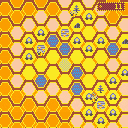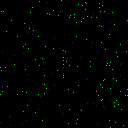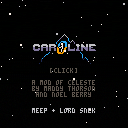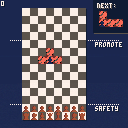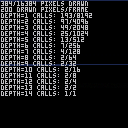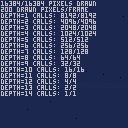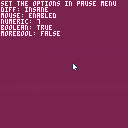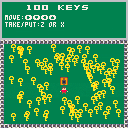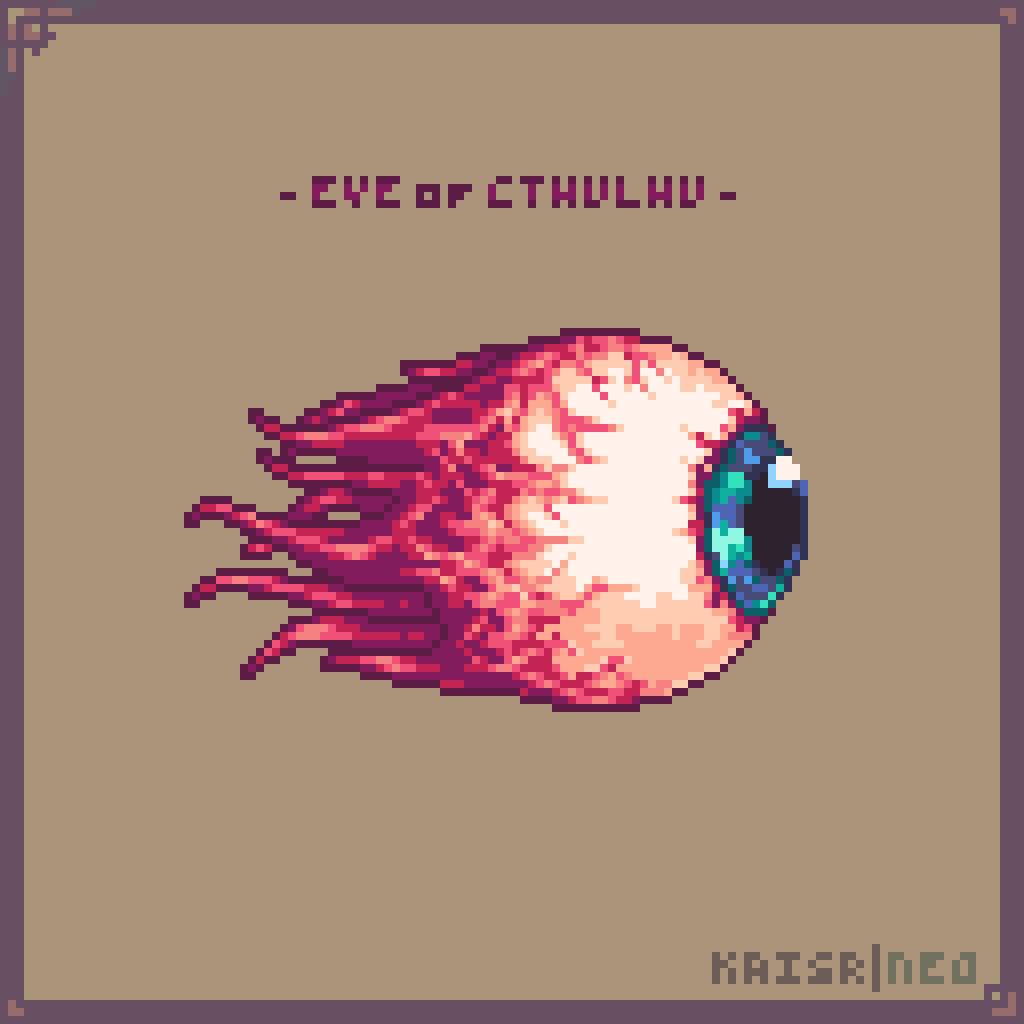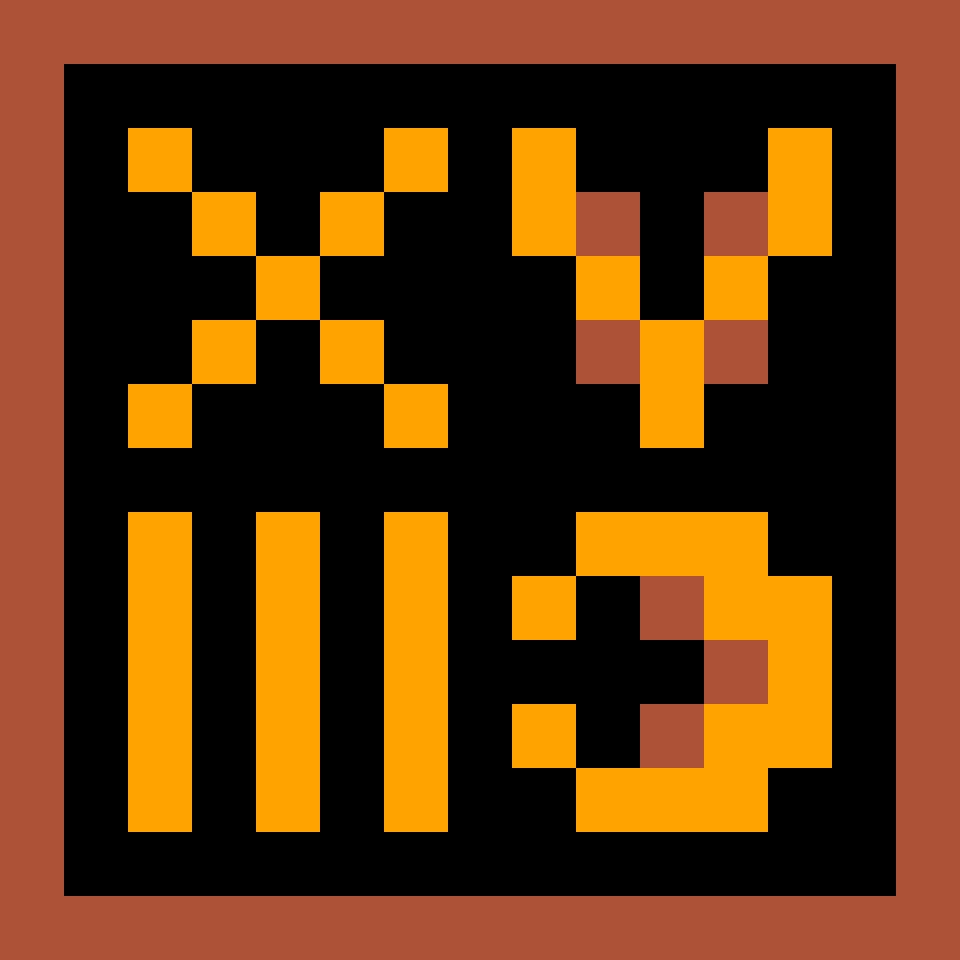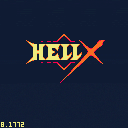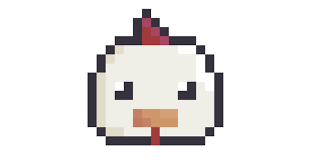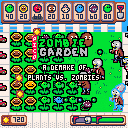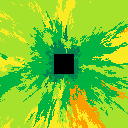Completely innacurate, but still looks cool IMO.
Also, space music!
I wanted to make a space game that looks like this, but eventually gave up and just made it a visualisation of the first four planets of our Solar System. I think it look cool, and am especially proud of the music.
Enjoy watching the rock spheres spin around and around. I sure did!
A question about dialogue boxes!
I'm new to both coding and Pico so bear with me, maybe there's no right answer but would appreciate suggestions.
Say you have a standard type of RPG game with a character who moves, and you approach or talk to an NPC, triggering a dialogue box on top of what's already on the screen (just like any old pokemon or dragon quest game). What would be an efficient way to do this? Load a new scene but don't clear the screen? Disable the player character's movement and actions while a list of text cycles through?
I've made a clunky textbox function (see image) but there must be a better way.
Any ideas or links to successful examples would be great.
Thanks in advance to anyone who answers!
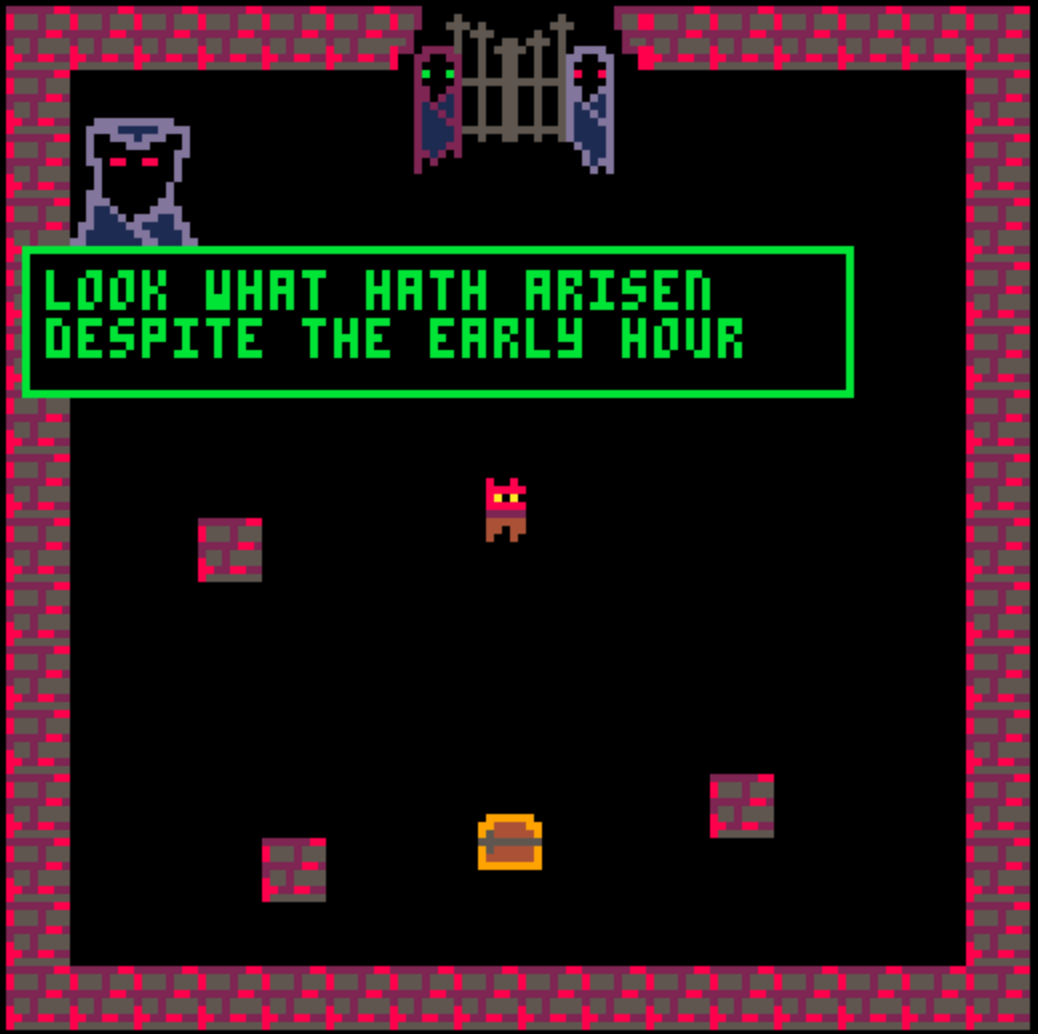

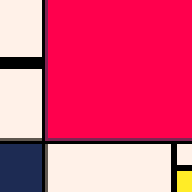

~Happy Bee Time~
Hi! I'm Taffy, and this is my first published Pico-8 game Happy Bee Time!
This is a randomly generated bee simulator where you just try to get as many bees as you can.
You explore by either buying tiles yourself for honey or letting the bees explore themselves.
Once you have enough honey, you can find a tree and get even more beeeeees!
I would like to add more to it in the future, though it will take some time before I do.
This was a very fun project to work with, and I am very happy with the pixel art and where
my programming skills with Pico-8 are going. I have learned a lot, and I hope you guys like it!
Controls:
- 🔼🔽◀️▶️: movement





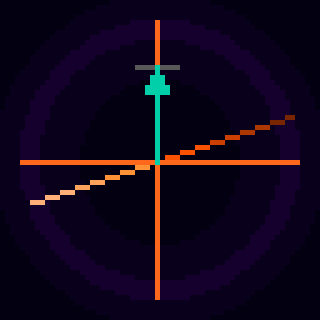
Random fireflies that procedurally syncs up in 270 Chr, not bad for a first tweetcart i guess?
Ctrl+r to start again
the code:
s,r,c=sin,rnd,pset p={}
for i=0,200 do p[i] = {}
for j=1,3 do p[i][j] = r(128)-64 end
end::_:: cls()for i=0,200 do for j=1,2 do po=p[i]
p[i][j]=(po[j]+r(2)-1)%128 end
po[3]+=(po[3]>p[flr(r(50))+1][3])and -0.1 or 0.1
c(po[1],po[2],1+s((po[3]/64)*t())%11)
end flip()goto _
|
A Portal demake disguised as a Celeste Classic mod.
Note: This is not a demo, if anything were to make you think so. 👀
Controls
E + S + D + F - Move
Left Mouse Button - Fire Blue Portal
Right Mouse Button - Fire Orange Portal
A or Middle Mouse Button - Clear Portals
Music by RubyRed








Is it Tetris, or maybe chess? Kind of both, but actually neither. Nonetheless, this is a game about strategy and sacrifice, borrowing notes from both Tetris and chess.
Tetrachess is a puzzle game in which your goal is to capture the AI opponent's chess pieces using your own chess pieces, following chess rules. However, the board is not like in chess at all. You have to drop Tetris blocks (tetriminos) containing the opposing chess pieces to the playfield. After you have dropped a tetrimino, it's time to move your chess pieces. You can capture the opposing chess pieces, earning you points, or you can eat the garbage blocks, cleaning up the playfield. After your own turn, the opponent moves their own chess pieces, potentially capturing yours.


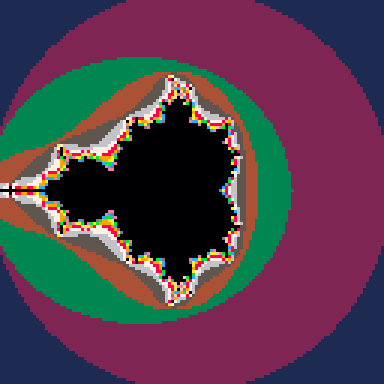
Example
Controls
Up/Down - change number of pixels drawn per frame by 20
Steps to reproduce
Write a program that runs nested coroutines when the frame end takes place.
Resulting and expected behavior
All coroutines except from the top one yield().
It's expected that coroutines resume normal work after frame end.
Example explanation
It's a program supposed to color the whole screen generating coordinates to color with a recursive coroutine (tab 2, "coroutine itself"). It is wrapped by a function that ensures all errors will be propagated and unwraps the output when no error is encountered (tab 1, "coroutine wrapper").
In pseudo code:
function coroutine(depth)
if (depth == 0) yield{0,0} return
c = cocreate(coroutine)
x,y = wrap(c, depth - 1) -- a wrapper around coresume
while x do -- this assumes that if x is nil then the coroutine
yield{x,y} -- has reached a return or end.
x,y = wrap(c)
end
c = cocreate(coroutine)
x,y = wrap(c, depth - 1)
while x do
yield shifted {x,y}
x,y = wrap(c)
end
end |
Info written on screen:
- Number of pixels coloured/number of pixels on screen
- Number of pixels coloured per frame (adjustable with Up/Down)
- Number of calls to subroutines of certain depth/expected number of calls
Failed workarounds
Adding a global table to hold recursive coroutines changes nothing.
Working workarounds
Limit the number of coroutine calls per frame with flip() outside the coroutines.
A wrapper that catches the nil yield and checks if the coroutine is dead. Doesn't work on coroutines that are supposed to yeld() or yield(nil)
WARNING! Skipps some coroutine outputs if flip() is called.
old_coresume = coresume
function coresume(c, ...)
flag, out = old_coresume(c,...)
if not flag or out != nil or costatus(c) == 'dead' then
return flag, out -- coroutine raised an error, yielded a non-nil value or finished
else
return coresume(c) -- resume from the unexpected yield()
end
end |
The example using an equivalent wrapper:


Overview
Here are a couple of code snippets for convenience of adding options/settings that:
- can be configured by the user via the pause menu (using MENUITEM())
- up to five settings can be added, limited by the number of menuitems.
- are automatically saved to & loaded from persistent cart data (0x5e00+ range, using CARTDATA())
- supports optional callback when setting is changed
- will also be called when first loaded, for initialization
General version
The first, generic version (tab 0) of the snippet supports:
- settings can offer multiple choices, e.g. difficulty: {"easy","medium","hard","insane"}

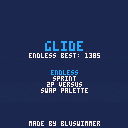
A game I made a little while back, but haven't posted here until now.
Glide through a wavy cavern with up and down. There are two gamemodes, an Endless Mode and a Sprint mode. There's also four color palettes. Enjoy!
Update (May 26, 2021)- A two-player multiplayer mode has been added.

The zombies are trying to eat your brain! Grow a plant infantry to stop them!
(Warning: not very mobile-friendly!)
A demake of the first world of the original Plants vs. Zombies.
10 levels, 8 different plants, 5 different zombies, 3 complete songs!
I couldn't fit the two mini-games on it, sadly.
My buddy @Gimbernau and I gave ourselves 30 days to do this entire thing, and what a ride it was. Because of the token limit, I decided not to put instructions inside the game, so there's a "How to play" section down below.
I hope you enjoy! If you have some thoughts about the game or if you find any bugs, please leave a comment in the comment section :)
PS.: There is another version of PvZ here in the forum! It's an endless reinplementation made by @gfcarstensen that is super fun! Check it out here: https://www.lexaloffle.com/bbs/?pid=51588#p
How to Play and Plant Stats
[hidden]
Zombies are coming!
Don't let them get to the end of your lawn.
Stop them by planting some seeds! And if they do get there, there's a lawnmower to stop them on their first attempt.
Gather sun by left-clicking on them.
Use your sun to buy plants!
Left-click on the plant you want to buy and then left-click once again (don't drag and drop!) on a tile to drop your plant. Right-click if you want to de-select your plant.
Each plant has a different power to help you crush the zombies. And everyday you get through, you get a new plant!
If you have your shovel unlocked, you can use it to dig plants off your lawn and free up some space! Left-click on your shovel and left-click again on the tile you want to dig. Right click to de-select the shovel.
The Plants:
Peashooter
Your first plant. Shoots peas at zombies that are on its lane.
Fast recharge
Sunflower
Produces additional sun every 24 seconds.
Fast recharge
Cherry Bomb
Explodes a second after it is planted. Kills any zombies in a 3x3 area centered on it.
Very slow recharge
Wall-nut
What a team player! Serves as a living shield, absorbing an enormous amount of damage.
Slow recharge
Potato Mine
Takes 15 seconds to set up. Once ready, explodes and kills a zombie on contact.
Slow recharge
Snowpea
Shoots freezing peas that also do damage. If a zombie is frozen, its velocity and damage are halved.
Fast recharge
Chomper
Eats an incoming zombie right away, but spends 42 seconds chewing. Rotten flesh isn't a joke...
Fast recharge
Repeater
Shoots regular peas, but twice as fast!
Fast recharge





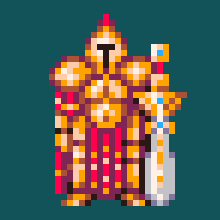




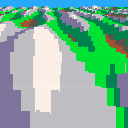
Came across this fun little algorithm today, thought I'd try it out.
Left and right rotate the camera, up moves forward.
Some serious artifacts going on still, but I'm fairly happy with how simple it was to implement. Had some fun generating the maps as well.

Hi, here's a cover of Board of Canada's Roygbiv in Pico-8 (with its new sound effects) playing over a tweetcart synced to the music. Because, well, I love BoC and Pico-8 :). Also playing in pattern mode on YouTube where you may also enjoy the original music.
You can play the tweetcart along your own Pico-8 music and it'll sync to it as well. Or it'll play at its own pace if there' no music.
Hope you'll enjoy.





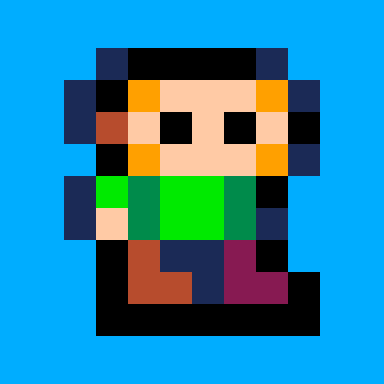








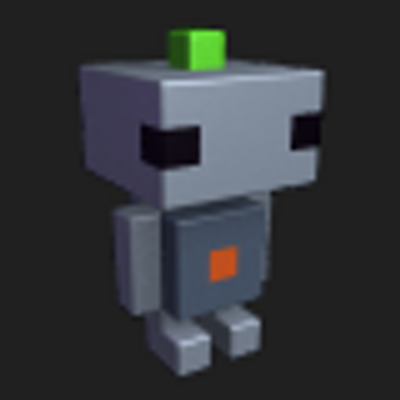
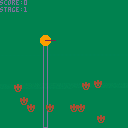
 0 comments
0 comments
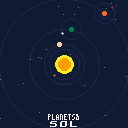
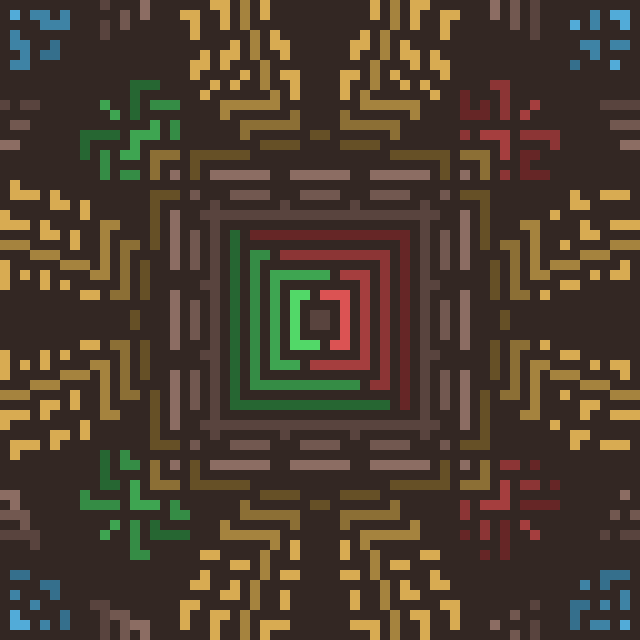




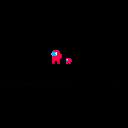
.png)


